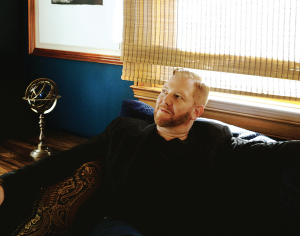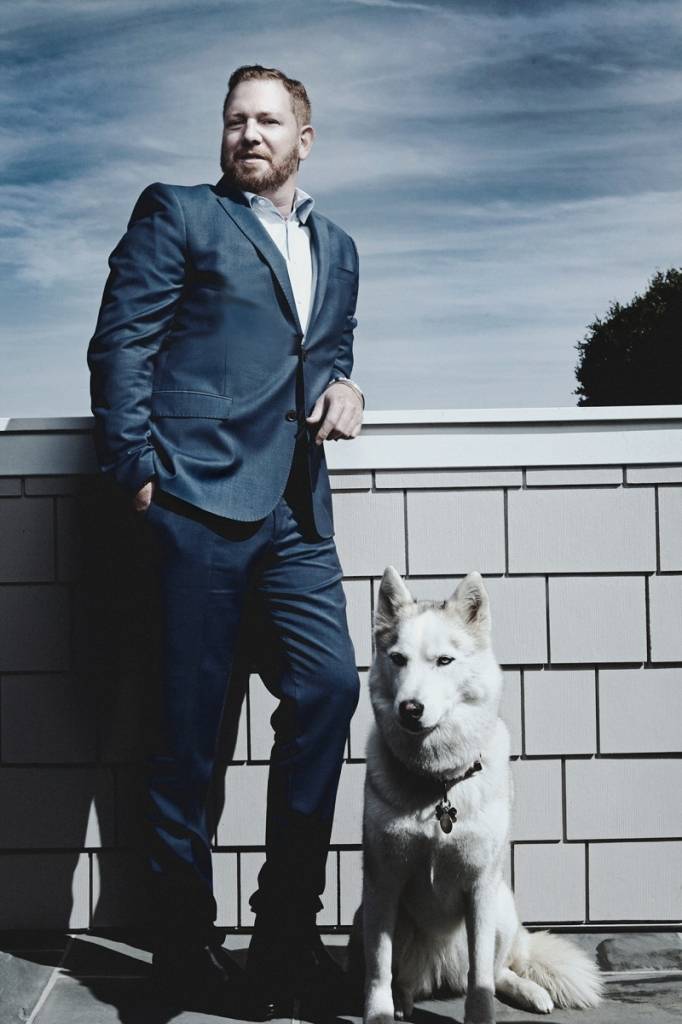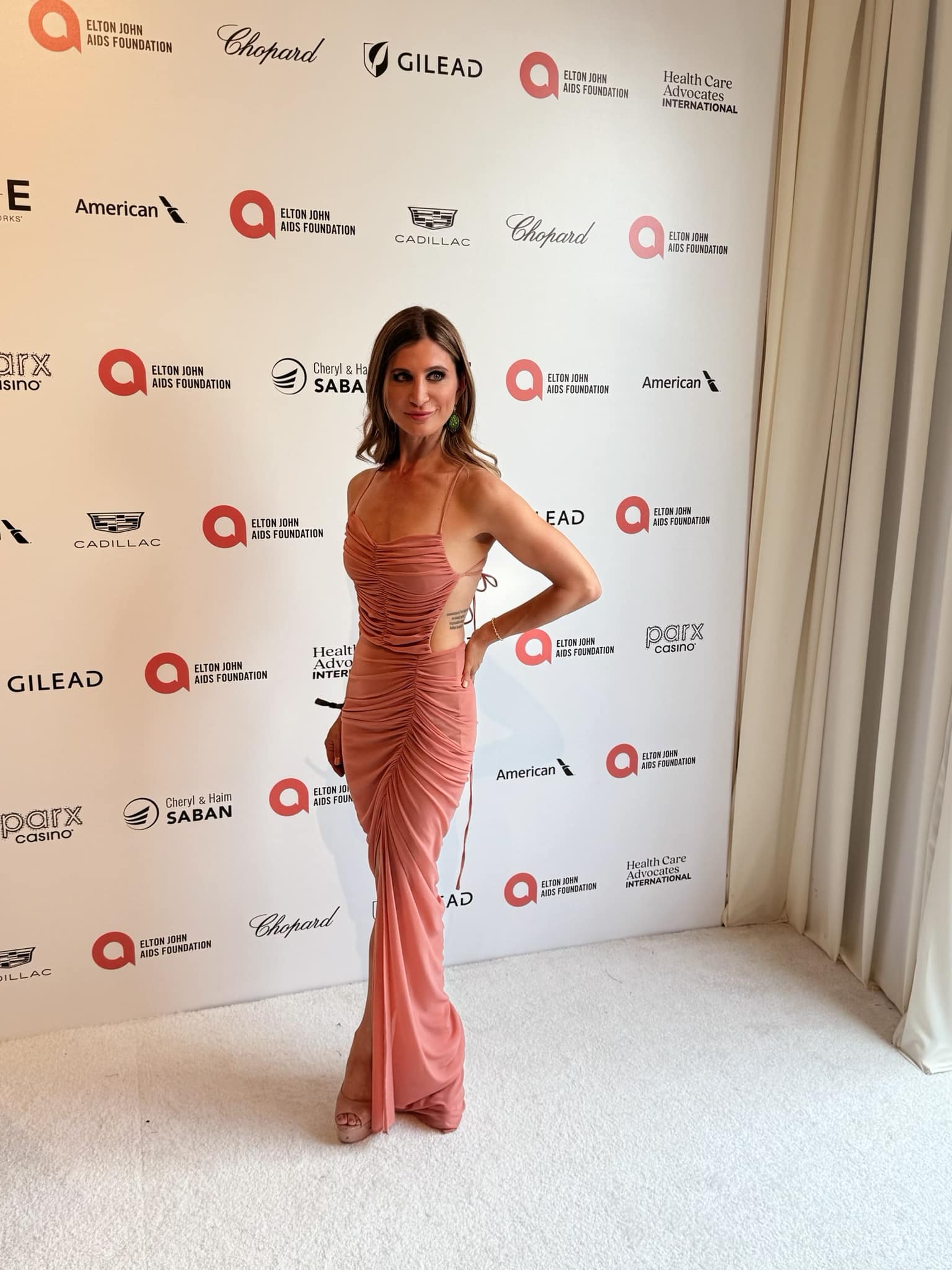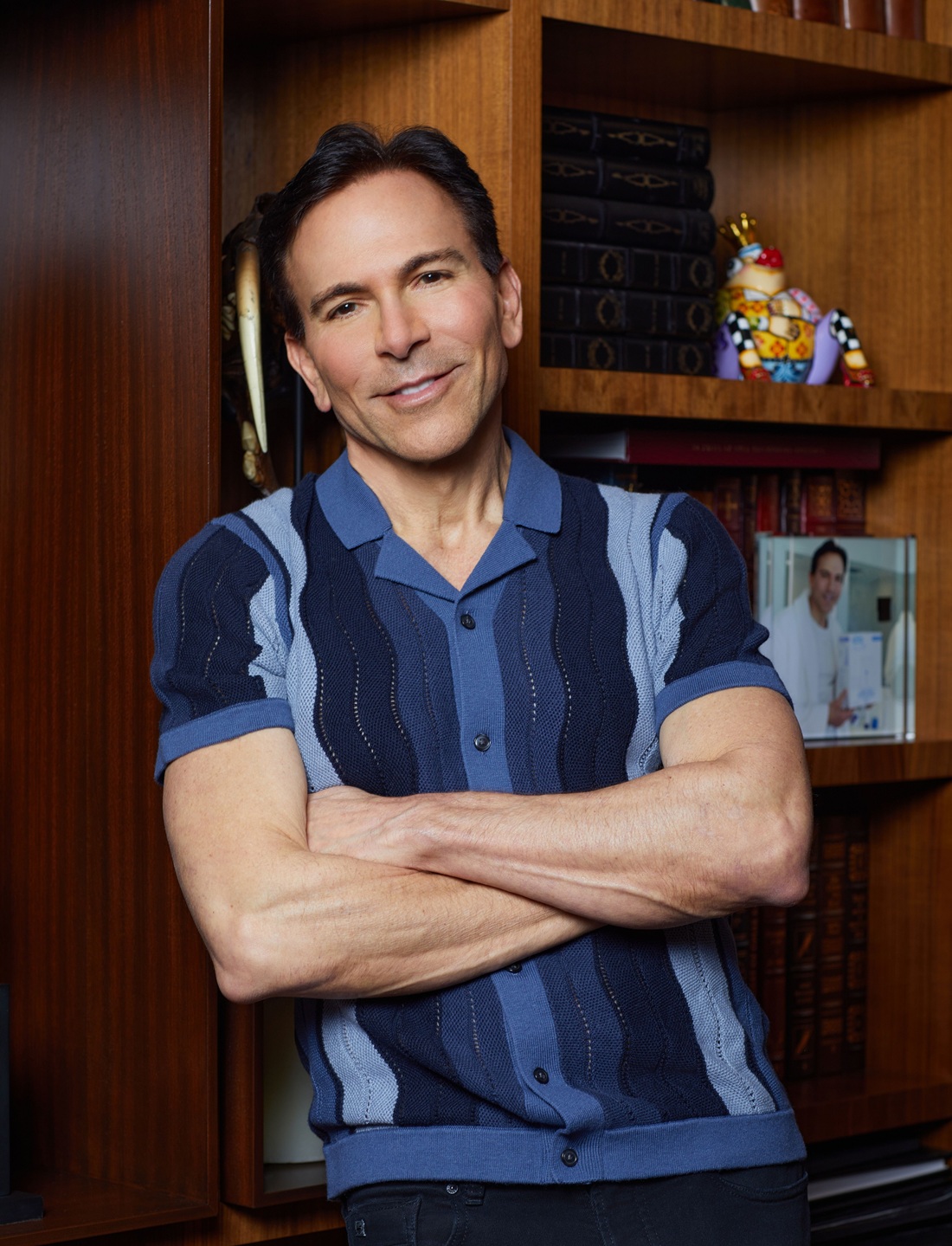The Life of Hollywood Innovator Ryan Kavanaugh is One of Film and Philanthropy

If you’re feeling stingy, do not—we repeat—do not attend a charity event that Ryan Kavanaugh is hosting. The Relativity CEO and founder will make you squirm until you donate. Is he at all abashed about his put-you-on-the-spot party trick? Hardly. In fact, he happily makes others mimic his philanthropic nature—even if they literally have to be forced into it.
“Hollywood lives between fear and greed—it’s a simple fact. To get someone to be charitable within those lines is sometimes very tough,” he admits, revealing, “The way I do it is, whenever I [host] a charity event, I call people out name by name; I’m known to do it on any stage. I will have my list, and call people out one by one, and literally I’ll make jokes about it. ‘I hired your client on this movie, and we’re about to hire your client on the next movie…I think…so how much are you giving today?’ If they’re not [donating] on their own, I’ll call them out in front of the room and do what I can.”
Such was the case at two recent events, and needless to say, Kavanaugh was successful in his mission; he raised $2 million onstage at the Art of Elysium’s Night Before Gala, and another million for the Los Angeles Ballet. Of the former he says, “I literally made everyone in the whole room give something, and did not stop until [they had].”

In case you’re wondering, the 39-year-old studio chief practices what he preaches, puts his money where his mouth is, and executes every other good cliché you can think of. He donates to over 50 charities including the Sheriff’s Youth Foundation, Jewish Big Brothers Big Sisters, the Cedars-Sinai Medical Center, AmFar, the Motion Picture & Television Fund, the March of Dimes Foundation, the National MS Society, and the Fulfillment Fund, which he was honored by on October 14 with an award in memory of his late mentor and friend, Tom Sherak. He is also an investor in Pathway Genomics, a company which provides physicians and patients with an array of actionable tests that can identify a person’s genetic risk for cancer, cardiac conditions and inherited diseases.
It is charities like the Fulfillment Fund—which makes college a reality for children growing up in economically under-resourced communities—that are his passion. “The focus certainly for most of the last decade has been around charities that help children, children that don’t have the resources to go college, or don’t have a good home life, or sick children,” he says, noting that, as the chairman of the Art of Elysium, he often goes to hospitals to work with ailing children, acts as a hands-on peer mentor with the Sheriff’s Youth Foundation’s Vida program, and also speaks at Relativity School, the school he founded in conjunction with his film studio.
Kavanaugh is also deeply passionate about animal welfare. He may have even physically prevented a few four-legged friends from being euthanized, including his quite aptly named Siberian Husky, Freedom.
“We got [to the shelter] at 3:30, and they were closing at 4. They were just going to put him down, so I basically laid my body on the floor and said, ‘I’m not leaving without adopting this dog,’” he recalls. “They said, ‘Today is his day—he’s up.’ I said, ‘I want to adopt him.’ They said, ‘Adoptions are over,’ and that’s when we raised holy hell.”
In case you’re wondering, it isn’t the first time that Kavanaugh has pulled this kind of stunt when it comes to animal protection. It’s a pretty frequent thing for the 39-year-old CEO to hop in his helicopter, head to a shelter, and save man’s best friend from being euthanized, after which he’ll place the canine in a safe and loving home.
Sometimes that home is his own. He currently has five four-legged friends roaming around his Nantucket-style Malibu manse, four of which are rescues. At any given time though, expect to find anywhere from five to eleven pups at Kavanaugh’s place. Yes, really.
“We’re kind of the go-to people [for rescues],” he admits. “I’ll get a call—‘This dog is about to be put to sleep in three hours’ in whatever city, and I’ll get in my helicopter, pick it up, and we’ll try to place it in a home.”
On his rescue missions, Kavanaugh learned that the reason many shelters put dogs to sleep within five days is because they don’t have the funds to buy food. Armed with this knowledge, Kavanaugh then decided to invest in a company that blended three of his loves: dogs, entrepreneurialism, and charity.
 After partnering with Rocky Keever in 2013, Dog For Dog, a premium pet food company with a philanthropic bent, was born. For each bag of food purchased, the company would donate one bag of food to a shelter. In building this new model, the ever-innovative Kavanaugh, who is the company’s acting chairman, has inadvertently created a new way of doing business: social entrepreneurialism, if you will.
After partnering with Rocky Keever in 2013, Dog For Dog, a premium pet food company with a philanthropic bent, was born. For each bag of food purchased, the company would donate one bag of food to a shelter. In building this new model, the ever-innovative Kavanaugh, who is the company’s acting chairman, has inadvertently created a new way of doing business: social entrepreneurialism, if you will.
“We would ask the pounds what it was that causes them to put dogs to sleep so quickly, and they said it was lack of money to buy food, so we would literally spend our weekends driving to Costco and dropping off as many bags of dog food as we could. It’s frustrating though—you have a truck full of dog food, but how much good is that actually going to do?” he wonders. From there, he says, “The first thing we did was hire a team of the top nutritionists and vets to develop [the brand]; our instructions were, ‘We don’t care how much it costs, just develop a dog food that is the best for dogs.’ The second piece was that for every bag that we sell, we donate a bag to the pounds. Last year we donated 250,000 pounds of dog food. Our goal is to break a million. We hope to end euthanasia in pounds.”
For his part, Kavanaugh can’t fathom why more businesses aren’t following this give-and-get model. “I don’t understand why every business shouldn’t operate this way,” he declares. “We’re able to have a business that generates profit that will be long-term and sustainable, and at the same time, gives back an equal amount.”
The Art of giving was something that Kavanaugh learned early in life, not something he “discovered” that could potentially help his career—one Hollywood artifice in particular that he can’t stand. His commitment to living a charitable life started in childhood, thanks to two fabulous philanthropic role models: his parents.
“I grew up with parents who were very charitable, both with time and with money. [We weren’t] super-wealthy; I grew up nice to upper middle class. They gave what they could with money, but more importantly, my parents were very involved in giving their time,” he says, recalling, “I used to go with my mom [Leslie] to build at Habit For Humanity when I was a kid. Every Christmas, we’d donate gifts to the homeless, and every Thanksgiving we’d feed the homeless. It was a big part of my upbringing.
“When you’re a kid, you’re forced to do those things, so you don’t appreciate them as much,” he continues. “When you become a teenager, you kind of forget about that stuff, [but] when I started to make a little bit of money, I [developed] this feeling inside that as much as life was giving to me, I needed to give back to it. One of these things that you don’t realize until you’re all grown up, as they say, is that I had something special that other people didn’t. It wasn’t that my parents were super rich or bought me everything, but more that they instilled good moral values and no matter what we did or didn’t have, they always made sure I had every kind of resource available to me.”
He adds, “As I started to build my business, it was a kind of promise to myself that as much as life gave me, I would give back both in dollar amounts and in time.”
It isn’t just philanthropic organizations, children and animals that Kavanaugh is passionate about: he also empties his pockets and lends his voice to political causes. On September 3, Relativity announced that he had made personal contributions of $25,000 apiece to four major pro-Israel organizations, including the Anti-Defamation League, the Friends of the Israel Defense Forces, America’s Voices in Israel and Hadassah, and the Women’s Zionist Organization. Kavanaugh felt it was his civic duty to speak up and give back in the name of his family.
“My grandparents were Holocaust survivors; my grandmother talked about it often, but my grandfather did not. The Anti-Defamation League became an important cause for me because it’s geared toward helping any group that’s being persecuted. Growing up as a Jewish person, you’re kind of tasked by the fact that you are the grandson of a survivor; you have that lineage. Their whole families were killed, aside from my grandmother and grandfather, who were in the camps for five years. You see the stories, you feel the stories, because your family lived them firsthand.”
After several celebrities with anti-Israel views came out publicly with their opinions on the conflict in the Middle East—such as Penelope Cruz and Javier Bardem—Kavanaugh came out with guns blazing, penning an open letter championing Israel. He was the only Jewish studio executive in Hollywood to do so.
“I was watching our industry, and a lot of people who were participating were speaking in a very uninformed way about sensitive topics that could have life-altering implications. When you start hearing people or seeing people that have influence say ‘Free Palestine’ and ‘What Israel did was mass genocide,’ it becomes really scary, and all of a sudden you look at the writing on the wall. I always had my grandmother there to remind me that this could happen—did happen—and the government doesn’t necessarily stop it.”
When a reporter called him asking if he wanted to participate on a story on the Hollywood elite speaking out against Israel, Kavanaugh wasn’t into it. “I said, ‘Not really,’ and got off the phone. But then I thought, ‘It’s crazy. Someone one day is going to have to step up and protect Israel, and nobody is.’” He then called the reporter back, and asked who else was participating in the piece. When he was told no one, it was the last straw, so he stood up and rose to occassion. “You have one democracy in all of the Middle East and it’s our job to protect it,” he says. “It was so disgusting to me that the industry is more concerned that somehow they might upset an actor who might not be in their movie, or it might hurt their paycheck versus the entire future of a country… so now I’ve become somewhat the go-to person. It’s totally bipartisan. We have a senator here pretty much every weekend because we’re the voice now—the voice to Hollywood.”
He hastens to add of those who have spoken out with opposing views, “I don’t think that these people are necessarily anti-Semitic—actors, and people who are signing petitions. I think they’re uninformed and don’t have a clue what they’re actually saying.”
Another thing that incenses Kavanaugh is the moniker “Hollywood’s Money Man,” a nickname he coined early on after creating a Monte Carlo model designed to predict the odds of a film’s success.
“When I came to Hollywood around 2003, 2004, there was no bridge between Wall Street and Hollywood. There were people who would quote finance movies, but they always had a really bad rap because the studios weren’t really talking co-financing at the time. When I joined the business, I saw a big hole, and the hole was the way that the studios ran. Because of what was happening in the world—a lot of major Fortune 100 companies had consolidated, and the studios were facing corporate parent companies shrinking their budgets—they needed a lot of money…fast.”
Kavanaugh, a former venture capitalist who founded the boutique KC US Venture Group, was then able to calculate the profit or loss of a movie by taking the data, re-filtering it, and then building a system of co-finance using Wall Street principles and the theories of risk and reward. But that was back in the beginning of his Hollywood career: much has changed in the past 10 years. Now, Kavanaugh doesn’t co-finance films, but instead has his own studio and television company, as well as his own sports and fashion agencies.
“I don’t think of myself as “The Money Man” anymore. [I’m] the innovator that doesn’t really care what people think,” he declares. “I spent 10 years building a business every step of the way [while] being told, ‘That’s never going to work.’ There are two sayings I live by; one is from Gandhi—he’s one of my heroes—and goes, ‘First they ignore you, then they ridicule you, then they fight you, then you win.’ That’s what I live by. Innovation means that you’ve come up with a new idea in an old system. This is a 100-year-old industry, and we’re threatening it.
“The reason I got that title originally is because the way finance occurred in Hollywood was broken and antiquated, and we fixed it. We make movies differently: 85 percent of our movies make a profit, while 85 percent of the others lose. The truth is that what we really did is change the model for financing movies, which then allowed Wall Street to invest in Hollywood for the first time. Prior to that, it was like putting someone who speaks Greek and someone who speaks Chinese together in a room and saying, ‘Figure out a deal.’”
It isn’t surprising that China is at the forefront of his mind: he’s been spending more and more time in the Asian country as he builds the Relativity brand overseas. “I started working in China in 2005; the first movie I shot there was called Forbidden Kingdom. I watched this teeny little market that had 2000 theaters total almost do the same numbers that we did in the U.S. That’s when I started going to China every month; I realized there was a huge market opportunity there. Through that process, between 2005 and today, I started building relationships. We spent years there before we jumped in, building at just the right level.
“Around 2008 or 2009, I started seeing all these major studio buildings pop up, but I don’t think they recognized how it works in China. In 2010, 2011, they shut down. So now, for us, because we did it differently and took the time to understand the model, we’re the only studio to have a distribution license there,” he says, adding, “We’ve signed documents to do seven or eight movies there next year alone; same deal in Africa and India. We announced a partnership with the Mittal family [headed by steel magnate Lakshmi Mittal]. We’ve launched a joint venture that they’ve put $100 million into that will put out more of our movies, more digital channels to create original content, and to start taking Relativity movies and converting them into Bollywood movies.”
Kavanaugh also made yet another power move by electing Steven Mnuchin as a non-executive co-chairman of the Relativity board; he’ll assist the company on strategic issues as it approaches a potential IPO in 2016. Kavanaugh, of course, will remain the company’s largest individual shareholder, with Elliott Management continuing to be a minority investor.
“Steven has been a trusted advisor for years, and I personally recruited him to join our board. He brings an unrivaled perspective on the ever-increasing value of content in Hollywood and Wall Street, and his experience will prove invaluable as we continue moving toward an IPO,” he says.
Kavanaugh, who turns 40 in December, is also be moving on to another phase of his life: after divorcing ballet dancer Britta Lazenga earlier this year, he recently asked Sports Illustrated swimsuit model girlfriend Jessica Roffey to be his wife. He shakes his head ruefully, acknowledging with a smile that his hurried yet heartfelt proposal is pretty typical of his life.
“We were in Vegas for a meeting, and we were supposed to be back [in Malibu] at three. We both love riding horses—we have our horses out here—so I had it set up where we were going to ride up to the top of the hill, get off the horse in front of an ocean view, and [I would] propose there. Well, my meeting ran late of course, and I couldn’t miss it. The tough part was that we were leaving for China that night, and we had an hour to get ready. As we landed [from Vegas] I said, ‘We have to ride; I haven’t ridden in two weeks.’ She couldn’t figure out why I wanted to ride so badly. We hopped on the horses and cantered to the top of the hill, and I said there was something wrong with my saddle. I got off and ‘checked’ it, got down on one knee, she jumped off her horse and then both of our horses leaned in and kissed us. Before she said yes—first she said, ‘Are you sure?’ and then she said yes—I said, ‘OK, well, I guess it’s kind of a good thing that it’s happening the way it’s happening—it’s indicative of our lives—I’m glad you said yes because we have to get home and pack for China now,” he laughs, adding, “Jessica is the most amazing girl in the world. She’s literally my partner; she makes my life ten times easier.”
As wonderful as his betrothed is, Kavanaugh is pretty sure she’s not going to deal with a bachelor party like his first: a boys-only getaway to Cabo San Lucas planned by Leonardo DiCaprio and Bradley Cooper. “We haven’t talked about the bachelor party yet, but I don’t know if Jess is going to be too happy about that,” he laughs, adding, however, that another boys’ trip is likely in his future.
While he’s waiting for that momentous day to happen (the wedding, not the bachelor party), Kavanaugh is going to keep focusing on the things he loves: his family, his helicopter (he flies to and from work every day), horseback riding, his “toys” (a 2014 VelociRaptor, a ’57 Mercedes-Benz and a ’64 Mustang Shelby that he completely restored), archery (which he’s been doing “way before The Hunger Games came out”), and feeling good in his personal cryosauna (one of only two private cryosaunas in the United States), not to mention his constantly evolving company and, of course, the charitable causes he holds so dear. In addition, he’s on the “slow road” to getting his Ph.D. in physics in a program was specially created for him at USC.
“For me, anything that I do—whatever it is—as much as I get out of it, I want to make sure to give that much back to it,” he says. “That’s the philosophy I live life by. I do really believe that you give what you get, and how important random acts of charity and kindness are. That’s what defines you as a human.”














